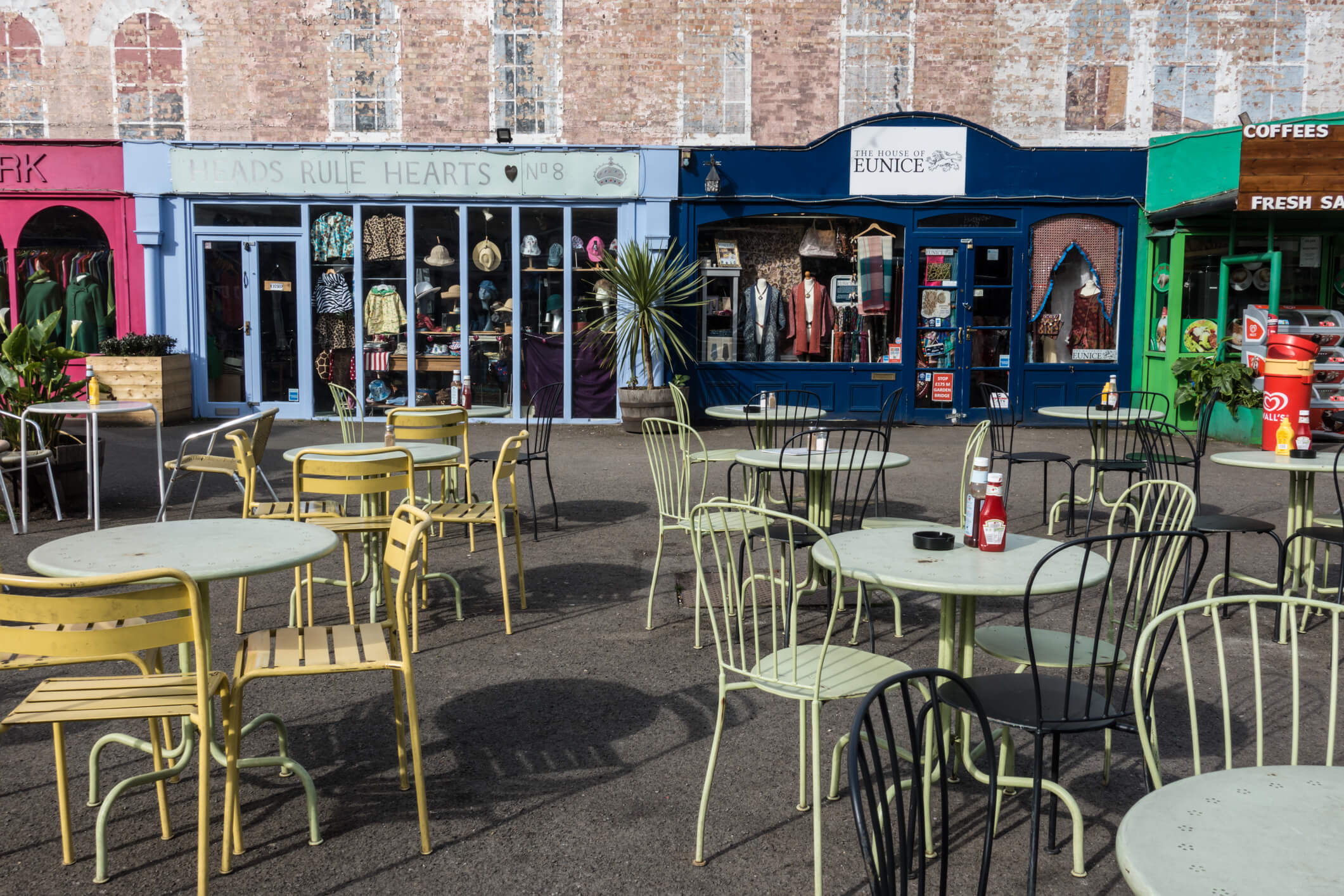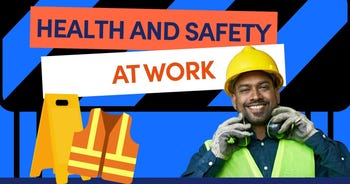Why can the location of your business affect your insurance prices and cover?
Choosing the right insurance for your business is an important consideration, and one key factor that can influence your insurance costs is your location.
From crime rates and natural disasters to the quality of local infrastructure, a lot of specific factors come into play. And, understanding these can help you make more informed decisions about your business insurance.
Let’s dive in.

What are insurance premiums?
Insurance premiums are the amount you pay for your insurance policy, and they’re typically calculated on several risk factors — including the location of your business.
Insurers will access these risks to determine the likelihood of businesses making a claim and then set their premiums accordingly. For example, a small cafe, salon or takeaway just starting out in a bustling city centre might face higher premiums due to increased risks associated with high foot traffic and crime rates.
How does location affect the cost of insurance?
Your business’s location plays a part in determining your insurance premiums. Essentially, the higher the risk, the higher your insurance costs.
For instance, if your business is located in an area prone to flooding or other natural disasters, insurers are likely to charge higher premiums because of the increased chances you will make a claim. Similarly, if you’re in a high-crime area, the risk of break-ins and vandalism is much more likely than somewhere with fewer reports of criminal activity, so you should expect higher insurance costs.
What location factors can affect your insurance rates?
There are a whole host of factors that can affect your insurance rates, but here are some of the most common that you’ll often see insurers use.
Natural disasters
Regions that are more susceptible to natural disasters like floods, earthquakes (although you won’t find too many of these in the UK), and storms usually face higher insurance costs. Typically, this is because the likelihood of damage from these events is extremely high, requiring insurers to cover potentially significant claims.
Businesses located in flood-prone areas may pay a higher premium because of the increased risk of water damage, while areas prone to severe weather can see extensive damage and disruption.
Crime rates
According to the government's most recent commercial victimisation survey (CVS), 409,000 businesses across the UK experienced some form of crime in 2023 — and just 58% of businesses that experienced crime in the last year reported it to the police — which could suggest they’re not reporting incidents in the hope their premiums won’t increase.
Insurers can use crime statistics to gauge the likelihood of incidents occurring, and areas that pose a greater risk of property damage, theft and other crimes will result in more frequent claims.
Nearby emergency services
You might be surprised to know that being close to emergency services like police, fire stations, and hospitals can lower your insurance costs.
Quick access to these services can reduce the potential damage from incidents, which in turn can lower the risk for insurers. If a fire station is close by, for example, the response time for emergencies is likely to be shorter, which then minimises the damage and reduces the overall risk for business properties.
What can you do to lower business costs if you’re in a high-risk area?
If you’ve set up shop in a high-risk area, there are some smart steps you can take to help manage and potentially lower your insurance costs — especially if moving your business might not be an option.
Install security systems
Adding security systems can make a big difference. If you haven't already, think about installing CCTV cameras, alarm systems, secure locks, and an access control system. These measures can help deter crime and show insurers that you’re serious about protecting your business.
CCTV, for example, can provide valuable evidence in the case of an incident, while alarm systems can quickly alert authorities to any potential break-ins on your property.
Use disaster-proofing measures
If you’re in an area prone to natural disasters like floods or storms, it’s advisable to take steps to protect your business from these events. This could be anything from installing flood barriers if you’re in a flood-prone arena, or securing heavy equipment in your warehouse to prevent damage during gale-force winds.
It might also be worth creating a detailed disaster response plan and training your employees on how to implement it.
Train employees on safety protocols and emergency procedures
A well-trained team can handle emergencies better than if your employees are unprepared and don’t have the right emergency response knowledge. Hold regular training sessions with staff on safety protocols and emergency procedures, and make sure all your employees know the evacuation plans, first aid procedures and how to use a fire extinguisher. It’s also a good idea to conduct regular fire drills and emergency response exercises — it’s better to be safe than sorry!
Enhance your cyber security measures
Cyber threats can be a big threat, and they can affect any business that uses any type of connected device: think payment devices, smartphones, laptops, tablets and more. To protect your business against cyber-attacks and data breaches, opt for cybersecurity measures like firewalls, encryption, regular software updates and secure passwords. You can also train your staff to recognise things like phishing emails — which can take a massive toll on your business and insurance if you become a victim.
Find out more about cyber insurance and protecting your business.
How can you find the crime rate in your area?
Criminals don’t discriminate against location, which is why you need to make sure that where you’re setting up shop is in a safe area.
You can head to the ‘Your Area’ page on the Police.UK website (excludes Scotland), which gives an overview of the top reported crimes in the past few months. It also has a useful crime levels graph showing rates over the last year.
It’s also important to remember that most insurance providers offer insights and reports on crime statistics as part of their risk assessment for your insurance.
How do insurers assess the risk of natural disasters?
When it comes to figuring out the risk of natural disasters for your business’s location, insurers tend to take a pretty thorough approach.
They’ll often take a look at things like:
- Historical data — First off, insurers can dive into the history books. They can look at records of past events like floods, earthquakes, storms and other natural disasters. This helps them spot patterns and understand the likelihood of these events happening again. For example, if an area has a long history of flooding, insurers may consider it a high risk.
- Geographical information — Next, they can consider the geography of your location. Using maps and geographic information systems (GIS), insurers often look at physical features like nearby rivers, coastlines and elevation levels. They can also check for things like fault lines and the type of soil your business sits on. Businesses near water or on low ground are generally more prone to flooding, whilst those near fault lines might be at risk of earthquakes.
- Climate patterns — Weather and climate are big factors, too. Insurers often study weather trends, seasonal changes and even climate change predictions. They can look at how often and how severe storms, heavy rain, or droughts might be in your area, so if you know your region suffers from heavy storms in the summer, this can be factored in.
- Construction — How a building is constructed matters a lot for insurers. For example. a building that has a concrete roof it may better withstand a natural disaster compared to a timber roof. A building’s construction should also comply with fire safety regulations.
Get your business set with Bionic
Understanding how your business's location affects your insurance prices and coverage is a good idea for ensuring that you have the right protection in place.
Get in touch with us today by starting a quote online or head over to our business insurance guides to find everything there is to know about sorting your insurance.








